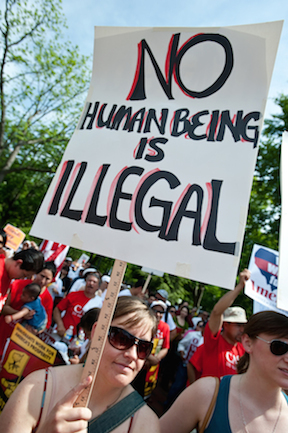AILA New Policy Recommendations on Immigration
AILA, or American Immigration Lawyers Association, is the preeminent national Immigration Lawyers Association. We, the member lawyers, actively work to propose policy initiatives to improve Immigration Processing, especially in the interest of family unity, decrease of private detention, reduce backlogs, and more.
On October 4, 2022, AILA issued a policy brief providing an update on the status of ten recommendations we made in our June 2021 policy brief, as well as additional recommendations the agency can take to reduce both backlogs and delays.
We made the following recommendations:
On October 4, 2022, AILA issued a policy brief providing an update on the status of ten recommendations we made in our June 2021 policy brief, as well as additional recommendations the agency can take to reduce both backlogs and delays.
We made the following recommendations:
- 1. Rescind regional travel bans and replace them with science-based solutions.
- 2. Resume stateside processing of visa renewals.
- 3. Expand visa interview waiver eligibility.
- 4. Automatically extend visas that expired during the COVID-19 pandemic by 24 months.
- 5. Maximize staffing on immigrant visa processing at consular posts.
- 6. Revise regulations to allow virtual immigrant and nonimmigrant visa interviews.
- 7. Leverage U.S.-based consular officers to adjudicate visa applications.
- 8. Admit all U.S. lawful permanent residents (LPRs) returning to the United States from abroad without conducting an abandonment analysis.
- 9. Adopt a policy to automatically extend immigrant visas from 6 months to 18 months, in coordination with CBP.
- 10. Recapture and avoid the loss of unallocated visas.
Thanks to advocacy from AILA and our members, over the last year, the Biden Administration has implemented multiple recommendations raised by AILA and statistics show that DOS is making headway. Issuance rates for immigrant and nonimmigrant visas have jumped substantially in the last year and the backlog of immigrant visa cases pending the scheduling of an interview has been reduced by 24%.
These improvements underscore the need for the agency to continue implementing policies that will help it reduce inefficiencies, lessen delays, and address the remaining backlogs that formed during the COVID-19 pandemic.
These improvements underscore the need for the agency to continue implementing policies that will help it reduce inefficiencies, lessen delays, and address the remaining backlogs that formed during the COVID-19 pandemic.
